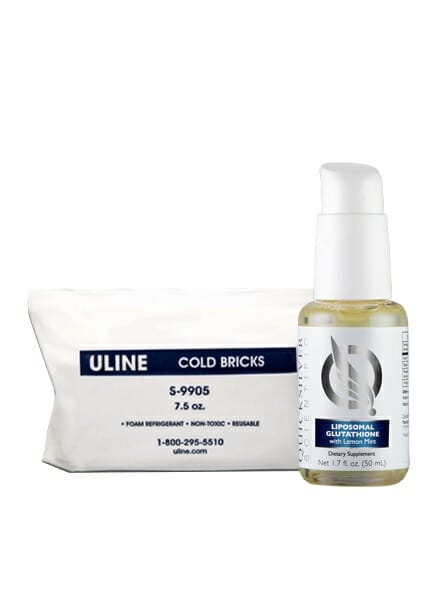Avoid These Top 10 Fish With The Highest Mercury Levels
Which varieties of Fish have the Highest Mercury Levels?
With all the talk of toxicity in our ocean, this is an important answer to know! Did you know your body can absorb up to 95% of the Mercury content in fish with high toxicity? Knowing which fish to avoid can help us avoid these unwanted toxins.
Per this FDA Report, these are the Top 10 Fish with the Highest Mercury Levels:
- Tilefish
- Swordfish
- Shark
- Mackerel King
- Bigeye Tuna
- Orange Roughy
- Marlin
- Spanish Mackerel
- Grouper
- Bluefish
Table of Contents
How Does Mercury Get Into These Fish? Authorities Cite 3 Sources
According to a 2009 study conducted by Harvard University and the U.S. Geological Survey, Industrial Mercury Pollution in the northern Pacific Ocean has seen a 30 percent increase since 1999 from 3 Sources:
- Coal-Fired Electrical Plants
- Incinerating Waste Disposal
- Smelting – The process of using heat to extract a metal from its ore
When Mercury goes airborne from Industrial Activity, it lands in our in lakes, rivers and ocean. By 2050, the study reported Mercury levels in the northern Pacific Ocean are expected to increase by 50 percent. If this is the case, how then do fish become Toxic?
3 Surprising Ways Large Fish Become the Most Toxic
- Marine Plants and Tiny Ocean Life are first contaminated from Airborne Mercury
- Small fish like Sole and Sardines feed on these Microorganisms
- Large fish like Swordfish and Shark eat the small fish and because they live longer, Mercury is stored deeper and deeper in their tissue as they accumulate more from eating Sole and Sardines.
Check out this video from Dr. Eric Berg to see how these fish become the most toxic.
Mercury toxicity in Swordfish, Shark, Marlin and other large fish presents a real threat to our health. But if eating fish can raise our Mercury levels, how does Mercury in Fish Affect Our Bodies? The answer below…
How Does Mercury in Fish Affect Humans? 13 Symptoms Adults and Children Considered
Mercury is a neurotoxin, the most toxic form of which is known as Methylmercury. I listed how ingested Mercury impacts the health of Adults and Children so you can have an idea of how Mercury in Fish affects human health.
These are 7 Main Symptoms of Methylmercury poisoning in Adults:
- Loss of Peripheral Vision
- Hand Tremors
- Increases in Memory Disturbance
- Feelings of “Pins and Needles” in the hands, feet and around the mouth
- Poor Coordination
- Speech, Hearing and Walking Impairments
- Muscle Spasms and Weakness
Unborn Infants are the most vulnerable to Methylmercury Poisoning if the mother consumes any of these fish on a regular basis. There are commonly 6 Effects Mercury has on Infants and Children:
- Cognitive Thinking Problems
- Difficulty Recalling Memories
- Struggle to Pay Attention
- High Sensitivity to Light, Color and High Pitch Sounds
- Impairments in Fine Motor Skills
- Poor Visual Spatial Skills
Is There a Link Between Mercury and Cancer? The Answer is Rather Gray
If the fish in our markets can cause neurological damage, can eating toxic fish be a link to cancer? I read through Volume V of the 1997 Mercury Study Report to Congress and found a surprising case study.
Methylmercury in very high doses has increased Kidney Tumors in rats and mice, however, the limited data we have does not show Mercury as a direct link to Cancer. The official statement from the EPA is, “No human data currently ties mercury exposure to cancer, but the data available are limited.”
At this point, we know Methymercury is harmful to our health. However, the extent of the harm in regards to cancer is rather gray. In its 2005 Cancer Guidelines, the EPA reported, “it is unlikely environmental exposure to Methylmercury and Elemental Metallic Mercury will cause cancer cells in humans.”
If you want to dive deeper on this subject, I recommend you checkout the IRIS Chemical Assessments for:
Although the limited data does not establish a link between Mercury and Cancer, you should pay attention to the type of fish you are eating and the amount of fish you eat per week. At the very least, there is real data to show Mercury as seriously harmful to our health.
Here are the Top 12 Fish With The Lowest Mercury Levels
Because the Omega 3 Fats commonly found in seafood have neuroprotective benefits for our brains, I have disclosed the Top 12 Fish with the lowest Mercury levels. Personally, I was very happy to see Salmon among the Top 10:
- Scallop
- Clam
- Shrimp
- Sardine
- Tilapia
- Anchovies
- Fresh/Frozen Salmon
- Catfish
- Squid
- Pollock
- Crawfish
- Butterfish
Conclusion – The Future of Fish and Your Health
Our ocean will likely continue to become more and more toxic as Industrial Activity shows no sign of letting up, we must pay serious attention to the specific fish we eat. Based on the authoritative research compiled in this post, I believe it would be wise to avoid the Top 10 Mercury-Rich Fish completely and opt for Fresh, Wild Caught Salmon.
To help reduce and protect against Mercury Toxicity in our environment, I recommend you fortify your cells with the Master Antioxidant, Liposomal Glutathione.

Glutathione is known as the “Master Antioxidant.” Click here to see it on our website!
Thank you for taking the time to read Which Fish Have the Highest Mercury Levels?
Your success is our passion. If you have any questions or contributions, please contact us via email or phone-call. We are constantly looking for new information to promote wellness – and hearing from you would make our day! Feel free to reach out to our free Health and Wellness Consultation headed by our Certified Health Consultant, Kurt LaCapruccia, D.S.S. (Diploma in Dietary Supplement Science).
Live Vibrantly! – DR Vitamin Solutions



